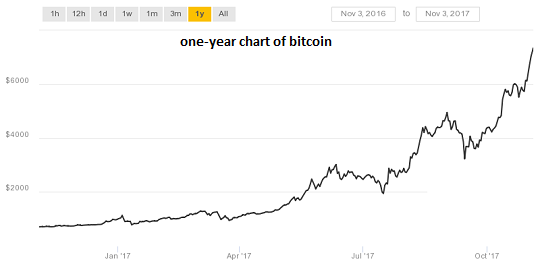If bitcoin can be converted into fiat currencies at a lower transaction cost than the fiat-to-fiat conversions made by banks and credit card companies, it’s a superior means of exchange.
One of the most common comments I hear from bitcoin skeptics goes something like this: Bitcoin isn’t real money until I can buy a cup of coffee with it.
In other words, bitcoin fails the first of the two core tests of “money”: that it is a means of exchange and a store of value. If we can’t buy a cup of coffee with bitcoin, it obviously doesn’t qualify as a means of exchange.
The confusion here is the same one that plagues the conventional understanding of the foreign exchange markets: people confuse exchange and convertibility, which are both flows, i.e. transactions.
Here’s an illustration of the difference.
Let’s say Hipster Coffee Bar accepts payment in bitcoin (BTC) for a cup of coffee. In the U.S., the coffee bar accepts the BTC as payment, which is then converted into the local currency, the U.S. dollar, to pay rent, employees’ wages and so on.
The Hipster Coffee Bar branch in Mexico converts the BTC into pesos, the branch in Thailand converts the BTC into baht, and so on around the world.
Another coffee shop, Most Excellent Coffee, doesn’t accept bitcoin in exchange for a cup of coffee. So when I enter Most Excellent Coffee, I convert a sum of BTC into U.S. dollars if I’m in the US, to pesos if I’m in Mexico or into baht if I’m in Thailand, and proceed to buy the cup of coffee.
You see the point: what matters isn’t whether the coffee shop accepts bitcoin directly; what matters is whether bitcoin is easily convertible to the local fiat currency. Put another way: convertibility rests on the recognition that the “money” is a reliable store of value that can be converted into a variety of other currencies.
As long as the cost of converting one form of “money” into another form of “money” is fast and low-cost (i.e. nearly frictionless), then it no longer matters whether the “money” in question can be used directly in an exchange or not.
Consider a credit card. Part of the service offered by the issuer isn’t just a line of credit to fund purchases; it’s convertibility from one’s domestic currency into whatever currency is used in the place where you’re making the purchase.
This convertibility is certainly fast in the credit card realm, but it’s not frictionless; rather, it’s costly, as a hefty fee is skimmed for every transaction paid in one currency and converted to the cardholder’s domestic currency.
If bitcoin can be converted into fiat currencies at a lower transaction cost than the fiat-to-fiat conversions made by banks and credit card companies, it’s a superior means of exchange.
In other words, it doesn’t matter what currency the coffee shop accepts; what matters is the friction involved in converting the currency you hold with the one the shop accepts.
If bitcoin can be converted into U.S. dollars at a lower transaction cost that the USD can be converted into (say) Swiss francs, it’s superior to fiat currencies as a means of exchange.
 If you found value in this content, please join me in seeking solutions by becoming a $1/month patron of my work via patreon.com.
If you found value in this content, please join me in seeking solutions by becoming a $1/month patron of my work via patreon.com.
Check out both of my new books, Inequality and the Collapse of Privilege($3.95 Kindle, $8.95 print) and Why Our Status Quo Failed and Is Beyond Reform($3.95 Kindle, $8.95 print, $5.95 audiobook) For more, please visit the OTM essentials website.
NOTE: Contributions/subscriptions are acknowledged in the order received. Your name and email remain confidential and will not be given to any other individual, company or agency.


I assume one would use their phone to make a BTC purchase, whether BTC is accepted or not. So what happens if the phones are shut down or no service? Seems the system is dependent wireless transactions. Maybe BTCTM’s are needed, like todays ATM’s, but again are dependent on wireless connections. What bothers me the most and has stopped me from purchasing BTC, I see it as a prelude to a cashless society and an eventual RFID chip for everyone, total warrantless monitoring of your finanaces and the ability of the state to shut one down for any reason they dream of. No thanks, I will buy real Gold before BTC